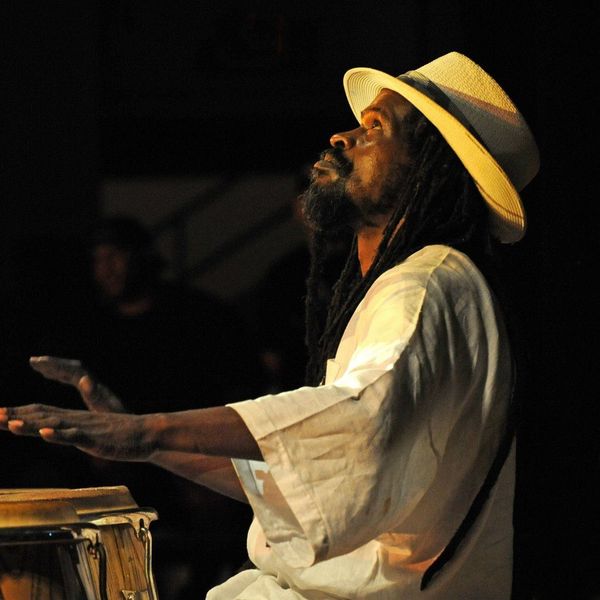In the latest Marketplace-Edison Economic Anxiety Index (yes, such a thing exists), fifty-five percent of Americans believe that the decline in the number of manufacturing jobs in the US is more so because of trade deals than natural changes in the economy. Naturally, these sentiments have found expression in popular politics.
Both the Clinton and Trump campaigns have released statements on trade issues, and there tends to be one scapegoat that is blamed first and foremost above all others: China. In fact, U.S.-China trade reform proved to be so important an issue that it made one of the (only) seven detailed policy proposals listed on the Trump-Pence 2016 campaign website. Trump, ever the fan of labels, details that he is going to “declare China a currency manipulator” to the world as part of harming China’s reputation and ultimately forcing trade renegotiation.
Although not as voracious as Trump in casting labels, Clinton too made her opposition to Chinese trade practices known in a speech to steel workers, declaring that “[she] would not tolerate attempts by China to solve its growing economic problems on the back of American workers." Accordingly, the airwaves and presses in America have been inundated with the sentiment that America is being wronged by China at the present, seemingly from both sides of the aisle.
The Chinese are certainly not ignorant of this reality. Thanks to social media and the Internet, everyone in the world can hear Trump and Clinton soundbites and know that American politicians are portraying the Chinese as essentially currency-manipulating job-stealing bastards (which, in all seriousness, they probably are). And, the Chinese government has decided to unleash a propaganda war of its own to justify its decisions. This has been turning heads (at least mine, anyway) as the Chinese have apparently begun to rap in American English to target Western audiences.
CD Rev rappers Chuckie (top left and right) and Pissy (bottom left and right)
The Chinese Communist Party Youth League hired the group CD Rev from Southwestern China to create “This is China.” As described in the introduction to the song, the goal of this work is to “restore the impression you have on my country, China / Which have been fabricated by media for a long time.” From a western perspective, the rap is pretty terrible – although I will admit that the backtrack is fairly catchy. With lines like “It is real that the pollution is severe at the present stage” and “We can now use apps to pay in nearly all the situations / Even to make an appointment with doctors” (Woah, really? Impressive!), it reminds me of my own rapping skills: nonexistent. In verse, the song appears to sound more like an official Communist Party panegyric than a rap, with long, bloated lines and repeated usage of big diction.
Even given its disputable quality, the song has drawn considerable attention and ire across the Internet. TIME magazine ran the headline “This Chinese Propaganda Rap Is the Most Painful Song Ever Recorded,” while Chinese international news outlet GB Times reported “Chinese propaganda rap brings netizens to tears." Indeed, these two headlines seem to reflect a general dichotomous split in responses to this music: many Westerners tend to think the piece insanely corny, while many Chinese tend to think the piece an important element of progress as it acknowledges both (a few of) the problems and successes of its government.
However, the actual song that the press stories are covering, “This is China,” isn’t really all that substantive in content – the song is just humorously bad and attempts to humanize the Communist Party. What is FAR more interesting to me is that these press releases have also managed to shed light on an earlier song produced by CD Rev, not officially developed with the Communist Party – “The Force of Red.”
“The Force of Red” provides a much more enlightening insight into the real emotions that CD Rev is trying to convey…not just an ode to the Communists. Right off, in the leading chorus, CD Rev makes it clear that there is only ONE China, proclaiming “F*** anybody trying to split up / PRC the leader.” Later on, the artists make a derogatory attack on the current female leader of Taiwan, and argue that “Taiwan ain’t a country, b****, at most a county.” In the second verse of the song, CD Rev opens with a homophobic slur, then calling the media “white trash.” Much like the World War II analogy that Japan’s attack on Pearl Harbor had awakened a sleeping giant, CD Rev proclaims “In this area, we are sleeping dragon in the arena” and closes the verse with “Tell your Uncle Sam about the thing / The red king’s coming back / If you are still provoking.” This is a very clear directed threat toward American perceptions of China and its general behavior in Asia, and it has a very different vibe than the almost pleading tone of “This is China.”
So, why does any of this matter? “The Force of Red” and to a lesser extent “This is China” function as Chinese propaganda responding to anti-Chinese U.S. propaganda - a rebuke to the hostility that China has received as of late in American politics, at least in trade. However, it just seems to be incredibly interesting that this latest batch of propaganda seems to be uniquely directed toward us and reaching our audiences.
I mean, does anyone else think it’s bizarre that the Chinese government is officially sponsoring rapping in American English to bash Americans? I get that this practice is not unheard of, but still. It’d be like if the US government attempted to make people rap in Chinese to bash China. As the rivalry between the U.S. and China continues to grow, we can apparently expect no popular media to be off limits for the Red Dragon to challenge Uncle Sam.





















